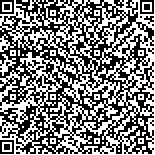马琳,何瑞波.吸气肌训练对病态肥胖患者减肥术后肺功能、呼吸肌力量及耐力的影响[J].中华物理医学与康复杂志,2022,44(2):148-152
扫码阅读全文

|
| 吸气肌训练对病态肥胖患者减肥术后肺功能、呼吸肌力量及耐力的影响 |
|
| |
| DOI:10.3760/cma.j.issn.0254-1424.2022.02.011 |
| 中文关键词: 病态肥胖 吸气肌训练 减肥手术 肺功能 呼吸肌力量 |
| 英文关键词: Obesity Inspiratory muscle training Bariatric surgery Pulmonary function Respiratory muscle strength |
| 基金项目: |
|
| 摘要点击次数: 4719 |
| 全文下载次数: 6683 |
| 中文摘要: |
| 目的 观察吸气肌训练(IMT)对病态肥胖患者减肥术后肺功能、呼吸肌力量及耐力的影响。 方法 采用随机数字表法将36例拟行减肥手术的病态肥胖患者分为观察组及对照组,每组18例。观察组及对照组患者均于术后第2~30天期间进行IMT训练,吸气阻力值分别设定为最大吸气压(MIP)的40%和5%水平,每天训练20 min。于手术前及术后第2,7,14,30天时分别检测对比2组患者肺功能[包括用力肺活量(FVC)、1 s用力呼气容积(FEV1)及最大呼气流速(PEF)等]、呼吸肌力量[包括最大吸气压(MIP)和最大呼气压(MEP)]及耐力情况。 结果 观察组各项肺功能指标[FVC:(91.6±11.2)% vs (105.5±10.8)%,P>0.05;FEV1:(92.1±15.6)% vs (104.7±11.3)%,P>0.05;PEF:(91.1±10.5)% vs (103.5±14.3)%,P>0.05]在术后第7天时均恢复至手术前水平,对照组各项肺功能指标[FVC:(95.8±11.2)% vs (104.5±10.5)%,P>0.05;FEV1:(92.7±12.2)% vs (102.8±12.3)%,P>0.05;PEF:(93.2±10.7)% vs (107.4±16.3)%,P>0.05]在术后第14天时才恢复至手术前水平;观察组在术后第30天时MIP[(112.5±11.6)% vs ( 100.0±9.3%),P<0.05]及吸气肌耐力[(126.1±10.9)% vs (100.0±11.2)%,P<0.05]均较手术前明显增加,对照组MIP[(86.2±8.6)% vs (100.0±10.9)%,P<0.05]则较手术前明显降低,呼吸肌耐力干预前、后无显著变化[(104.6±11.5)% vs (100.0±9.9)%,P>0.05]。 结论 IMT训练能有效改善病态肥胖患者减肥术后吸气肌力量及耐力,同时还能加速肺功能恢复,该疗法值得临床推广、应用。 |
| 英文摘要: |
| Objective To explore the effect of inspiratory muscle training (IMT) on the pulmonary functioning, respiratory muscle strength and endurance of morbidly obesity persons after bariatric surgery. Methods Thirty-six morbidly obese patients undergoing bariatric surgery were randomly divided into an experimental group and a control group. A 20-minute daily IMT intervention was administered on the 2nd through the 30th day after the operation. The intensities were 40% and 5% of the maximum inspiratory pressure (MIP).Forced vital capacity,forced expiratory volume in 1 second,maximum peak expiratory flow,maximum inspiratory pressure (MIP) and maximum expiratory pressure,as well as endurance were measured before the operation and on the 2nd, 7th, 14th and 30th day afterward. Results By the 7th day the pulmonary function of the experimental group had recovered to the level before the operation. For the control group that took until the 14th day. On the 30th day after the operation the average MIP and inspiratory muscle endurance of the experimental group had increased significantly compared with before the operation, while the average MIP of the control group had decreased significantly. Conclusions Inspiratory muscle training can improve inspiratory muscle strength and endurance and accelerate the recovery of lung function of morbidly obese persons after bariatric surgery. |
|
查看全文
查看/发表评论 下载PDF阅读器 |
| 关闭 |